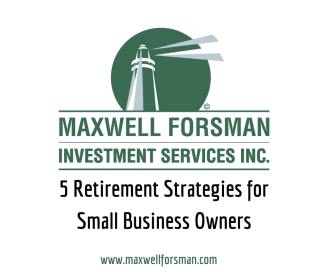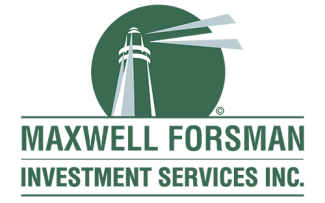
5 Retirement Strategies for Small-Business Owners
Small-business owners are an essential component of America’s economy. In the United States, 99.7% of all firms are comprised of small businesses with 500 or fewer employees. However, small business owners often spend an exorbitant amount of time and energy building their companies— which can make focusing on their personal financial future challenging.
#1 Strategy- The Retirement Roadmap
One-third of small-business owners don’t have retirement strategies in place.
Building, running, and growing a company can be tough. Often, in the midst of fulfilling your professional priorities, your personal financial life is placed on the back burner. Believe it or not, you’re not alone.
Many entrepreneurs see their growing businesses as a means to retire. Furthermore, many start retirement plans when the business is first started and don’t often review whether the approach still works for the business. However, just having a business does not automatically translate into having a retirement strategy in place. Without a roadmap—one that goes beyond the hope of simply selling the business or passing it to family—you could end up pushing back your ability to retire. In one survey, one-third of respondents said they have no retirement strategy, while 34 percent said they’ll look for new job opportunities after they retire from their business.
But, as we all know, delaying retirement isn’t always an option, and life often brings surprises. For example, certain health challenges may cause you to retire early. A valid concern is that only 31 percent of retirees were very confident in their ability to cover medical expenses during retirement.
To help ensure that you can retire on your terms, you need to be proactive and address the following items as soon as possible.
WHAT TO DO NOW
• Define your ideal retirement. Clarify when you want to retire and the lifestyle you hope to enjoy.
• Build strategies to attend to your retirement. Determine the actions you must take to fill the gaps between your current assets and the income you will need to support your desired retirement lifestyle.
• Hold yourself accountable. Do not let the busy life of business ownership keep you from staying on track toward the retirement you desire.
Strategy #2- Your Exit
Nearly one-third of U.S. businesses survive the second generation—but only 13 percent survive through the third.
For many business owners, selling their companies at top dollar or passing them down to future generations is the goal. However, studies have shown that even though 50 percent of business owners plan to leave their businesses in the next decade, only 34 percent have a business succession plan in place. Over 40 percent of small business owners plan for their retirement to begin after age 65.
No matter how much you love your business, a clear exit strategy is necessary to help foster your company’s longevity and preserve your financial health.
WHAT TO DO NOW
• Define your ideal exit strategy. Do you want to sell your business? Pass it to the next generation? Find an outside successor?
• Determine the real value of your business. Hire a qualified professional to provide a clear valuation of your company as it stands today. Depending on how far you are from retirement or exiting, you might need to revisit this valuation in the future.
• Create a strategy—and stick to it. Your exit strategy might require you to hire new people, adjust your services, or implement some other changes.
Strategy #3- Business Reinvestment and Retirement Savings
In one survey, 58 percent of respondents claimed that preparing for retirement makes them feel stressed.
Trying to build retirement savings while you grow your business can be challenging. With only so many dollars to go around, you might be tempted to reinvest in your company instead. However, even if you are ready to sell your business at retirement, you need savings that are completely separate from your business.
The reality is that relying solely on the value of your business to carry you into retirement can be risky and easily backfire. Not only can industries change and companies falter, but the market for small businesses can also be highly competitive depending on multiple economic factors.
Would you and your family be able to enjoy a comfortable retirement without your current income or profits from selling your business? If the answer is no, then it is past time to start building your savings.
WHAT TO DO NOW
• Balance your personal and professional finances. When deciding how to invest your available assets or what salary to take, make sure to address both sides of your financial life.
• Ask your financial professional about available retirement-savings tools. Rules regarding retirement plans change over time, so it is important to evaluate your retirement strategy periodically.
• Review your budget and create a savings approach. Identify ways you may be able to trim your expenses and establish a habit of regularly contributing to your personal retirement savings.
Strategy #4- Get Sufficient Life Insurance Coverage
Going without life insurance can end up costing more in the long run.
In this section, let’s discuss life insurance. Most people are familiar with life insurance, but the role this product plays for small business owners can be more complex than for the typical individual. Of course, sufficient life insurance can help protect your family’s financial security if you were to pass away. However, a business owner could have extra liabilities, such as business collateral. If you take out loans to support your business by using personal assets as collateral and you pass away, your family members may be on the hook for that debt, which could jeopardize their financial standing. However, life insurance provides an added layer of protection for your loved ones.
Keep in mind that this report is for informational purposes only. It’s not a replacement for real-life advice, so make sure to consult your legal or tax professional before considering using personal assets as collateral.
WHAT TO DO NOW
• Analyze your life insurance coverage. Do you have the right tools? Do you have unrecognized gaps?
• Address your life insurance needs. Calculate your total debts and expenses to determine the amount your family would need if you were to pass away prematurely.
• Uncover life insurance opportunities. Work with a professional to determine how life insurance might be able to help support both your business needs and retirement goals.
Several factors will affect the cost and availability of life insurance, including age, health, and the type and amount of insurance purchased. Life insurance policies have expenses, including mortality and other charges. If a policy is surrendered prematurely, the policyholder also may pay surrender charges and have income tax implications. You should consider determining whether you are insurable before implementing a strategy involving life insurance. Any guarantees associated with a policy are dependent on the ability of the issuing insurance company to continue making claim payments.
Strategy #5- Outside Support
Federal regulations cost the American economy $1.9 trillion a year in direct costs, lost productivity, and higher prices. The costs to small businesses are nearly 20 percent higher than the collective average for all businesses.
Running a successful small business requires a number of skills, from delivering your product or service to managing employees and enabling growth. Although there is no shame in building a team to support your success, many business owners seem to forget that they do not have to do it alone.
Take medical insurance, for example. Learning the ins and outs of various medical policy choices can be challenging and is often best left to people who know what questions to ask.
Also, consider the following: In the past 22 years, federal agencies have published 15,458 rules that may negatively impact small businesses. Hiring outside help gives you access to experienced professionals who can apply their knowledge to your specific needs and manage regulatory obstacles efficiently.
WHAT TO DO NOW
• Determine the types of professional support you need. Depending on your circumstances, you may want to consider hiring a tax professional, attorney, or financial professional.
• Connect your professionals. Aligning your financial life requires deep communication. Make sure your support team has a clear picture of how they are expected to work together.
• Embrace the benefits of delegation. Your professional team is there to help support you with their guidance. Let them provide the insight you need, and take this weight off your shoulders.
HOW WE CAN HELP
Launching and growing a small business is a challenging and time-consuming endeavor. This is why in times of economic fluctuation and changing regulations, we believe it is critical to seek guidance from a financial professional.
The information in this report offers a helpful overview of what you might need to prepare for your own retirement. From our experience, small business owners who consider these strategies—and take proactive steps to plan for the future—are better able to enjoy the lives they desire.
We know balancing your personal and professional priorities is tough. Therefore, we are here to serve as a resource for you and your family.
If you have any questions about the information you read or would like to discuss your specific needs, please contact us. We would be delighted to speak with you.
This material is for information purposes only and not intended as an offer or solicitation with respect to the purchase or sale of any security.
Investing involves risk, including the potential loss of principal. No investment strategy can guarantee a profit or protect against loss during periods of declining values.
Neither the named representative, nor the named Broker-Dealer or Registered Investment Advisor, gives tax or legal advice.
Past performance does not guarantee future results.
All information is believed to be from reliable sources; however, we make no representation as to its completeness or accuracy. Please consult your financial professional for further information.
These are the views of FMG Suite LLC, and not necessarily those of the named representative, Broker-Dealer, or Registered Investment Advisor, and should not be construed as investment advice.
1 SBECouncil.org, 2022
2 AllBusiness.com, 2022
3 EBRI.org, 2022
4 FamilyBusinessMagazine.com, August 2022
5 BusinessNewsDaily.com, June 29, 2022
6 EBRI.org, 2022
7 BusinessNewsDaily.com, August 3, 2022
8 USChamberFoundation.org, 2022

